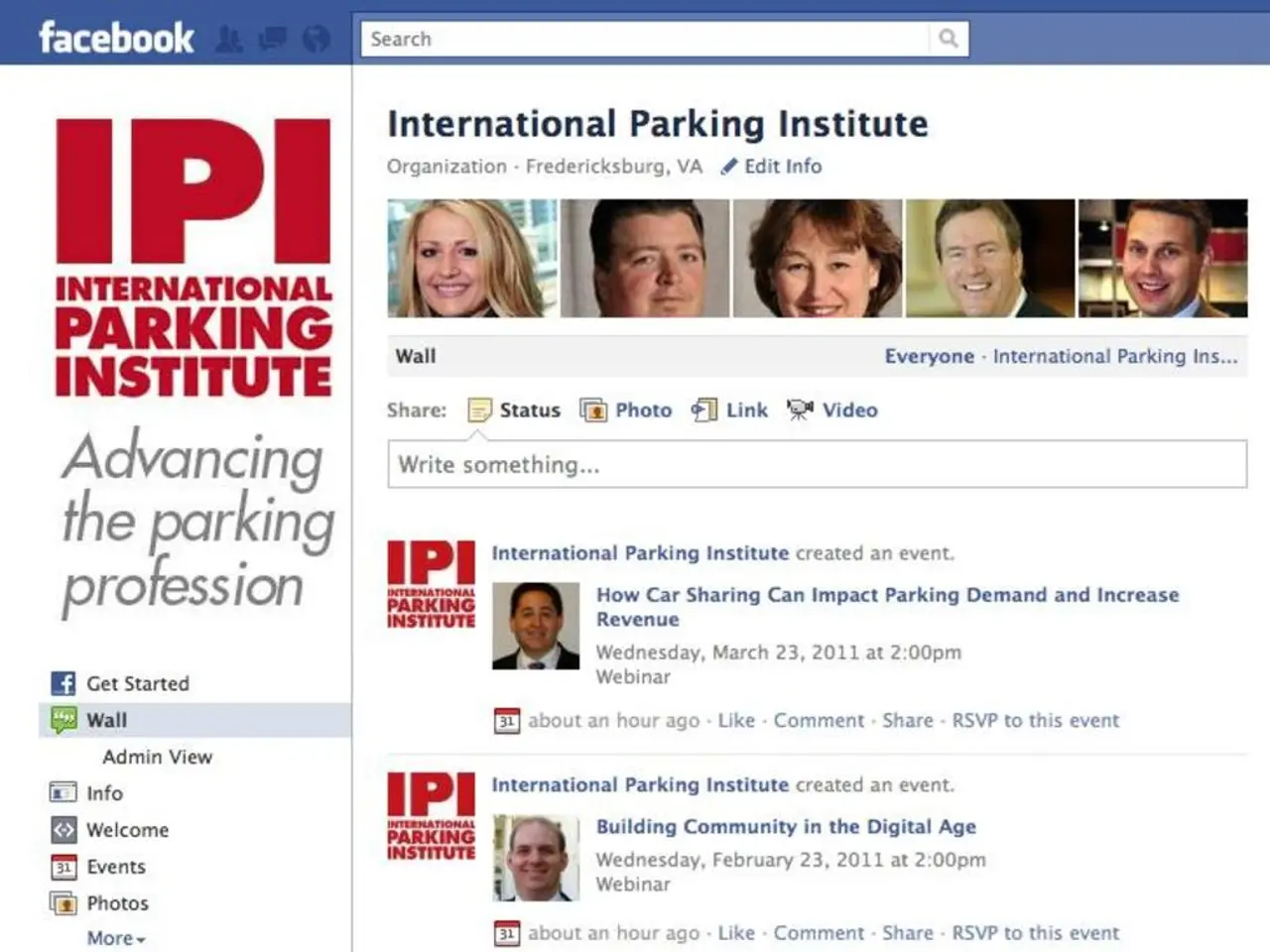Daily routines reshaped: the profound impact of the internet's growth on our everyday lives
In the late 1990s, the internet was born as a digital utopia, promising free access to knowledge and greater connection among people [1]. Fast forward to today, and it's clear that the internet has significantly transformed our lives, reshaping the way we communicate, learn, and consume. However, this digital revolution has not been without its challenges.
One of the most noticeable changes is the shift in social dynamics. Hyperconnection through digital means has promoted loneliness and the loss of certain social skills, such as starting conversations with strangers [2]. Establishing disconnection routines is essential for integrating technology consciously, ensuring it enhances human experience rather than replacing it [3].
The rise of social media has become the primary source of entertainment and access to cultural content, leading to fragmented, algorithm-mediated consumption [4]. This shift has resulted in close ties decreasing while weaker ties have multiplied in the digital environment [5]. The prevalence of digital communication has made going out onto the street and ringing someone's doorbell a rarity [6].
The internet has also increased daily screen time, averaging four hours and 10 minutes [7]. This extended screen use before bed reduces sleep duration, increases insomnia risk, and disrupts natural body rhythms [8]. Furthermore, consumption has become accelerated and careless due to the internet [9].
AI can enhance learning but also generates uncertainty about evaluation and originality of work [10]. It is crucial to teach students to use AI critically [11]. However, education has had to reinvent itself with almost infinite access to digital content, leading to faster and more practical learning methods, but potentially generating gaps in deep cultural knowledge and poorer reading comprehension.
The pandemic has generalized remote work, blurring the boundaries between professional and personal life, leading to continuous availability and an increase in self-exploitation [12]. The rise of online shopping has redefined consumption habits, favoring global giants at the expense of local commerce [13].
Despite these changes, attachment to the local continues to be relevant and is manifested in hybrid relationships [14]. The person who experienced the time before the spread of the internet without the possibility to communicate online or access information that way belongs to the generations preceding Generation Z, such as Generation Y (Millennials) or earlier generations who grew up before widespread internet use, primarily those born before around 1995 [15]. Generation Z, born roughly between 1995 and 2010, are digital natives who have always known the internet and online communication.
Social gaps have deepened due to businesses that make certain knowledge expensive [16]. The arrival of the first computer at the workplace was initially traumatic due to lack of familiarity, but later seen as a tool that greatly facilitated work, although with increased demand [17]. Screen use before bed reduces sleep duration, increases insomnia risk, and disrupts natural body rhythms [8].
60% of citizens aged 18 to 65 check their mobile as the first and last thing they do each day [18]. This constant connectivity has led to concerns about mobile addiction. It is essential to establish disconnection routines to maintain a healthy balance between technology and human interaction.
In conclusion, while digital technology has brought about numerous benefits, it has also presented challenges that require conscious integration to ensure it enhances human experience rather than replacing it.
References: 1. The birth of the internet in the late 1990s (source not provided) 2. Hyperconnection leading to loneliness (Celia Díaz Catalan, sociologist) 3. Establishing disconnection routines (Celia Díaz Catalan, sociologist) 4. Social media as the primary source of entertainment (Julián Cardenas, sociologist) 5. Close ties decreasing while weaker ties multiply (source not provided) 6. Going out onto the street becoming a rarity (source not provided) 7. Increased daily screen time (source not provided) 8. Screen use before bed affecting sleep (experts) 9. Consumption becoming accelerated and careless (Rafael Conde Melguizo, researcher and professor at UDIT) 10. AI enhancing learning but generating uncertainty (Beatriz Amman) 11. Teaching students to use AI critically (Beatriz Amman) 12. The pandemic generalizing remote work (source not provided) 13. Online shopping redefining consumption habits (Cani, owner of a family-run haberdashery in Galicia) 14. Attachment to the local remaining relevant (Margarita Baranano, digital sociology expert) 15. Generation Z being digital natives (source not provided) 16. Social gaps deepening due to expensive knowledge (Celia Díaz Catalan) 17. The arrival of the first computer at the workplace (source not provided) 18. 60% of citizens checking mobile as first and last thing each day (VI Edition of the Mobile Addiction Study)







